The Catalan RDI Networks Organise the Debate “Women, Science, and Transfer”
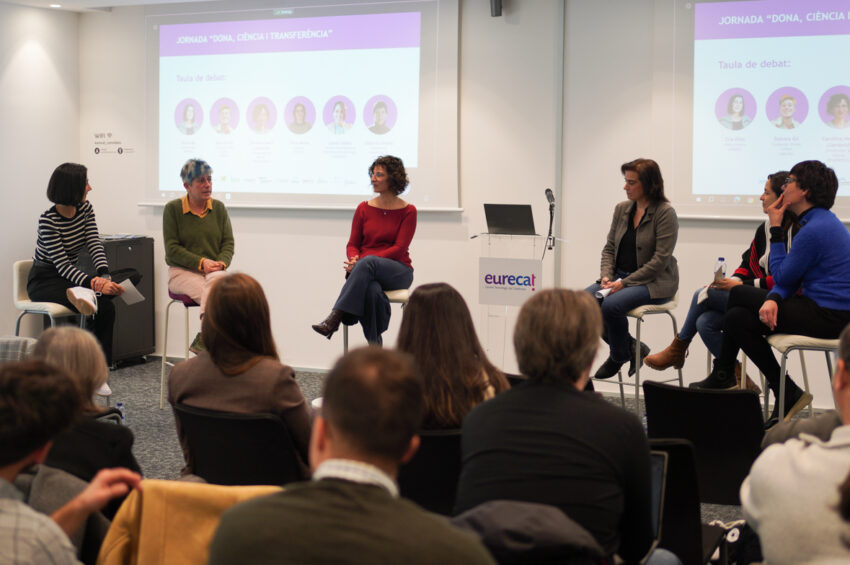
The Catalan transfer networks funded by the Agency for Management of University and Research Grants of the Generalitat de Catalunya (AGAUR), including i4KIDS, the Paediatric Innovation Hub coordinated by Hospital Sant Joan de Déu, celebrated the International Day of Women and Girls in Science with a joint event.
Eurecat’s headquarters in Barcelona hosted this event, aimed at reflecting on the challenges and opportunities faced by women in the scientific and technological fields, as well as discussing their active participation in the processes of knowledge transfer to the productive sector.
Under the title “Women, Science, and Transfer”, the event began with a welcome by Maria Laura Llapur, Head of Personnel Administration and Equality Agent at Eurecat.
This was followed by a presentation from Dr Susana Ochoa, from the MERITT research group (TECSAM), who shared some striking data: only 25% of lead authorships in scientific articles are signed by women, 33% of research funding is awarded to women, and only 32% of research groups are led by women.
Two key effects explain these differences between men and women in the development of careers in scientific research: the “Matilda Effect”, the historical invisibility of women’s achievements in science, and the “Scissors Effect”, which describes the progressive decline in female representation as careers advance. Glòria Boqué, from the MOCOTO project (XARTEC), shared her experience in leading an innovation project from concept to market.
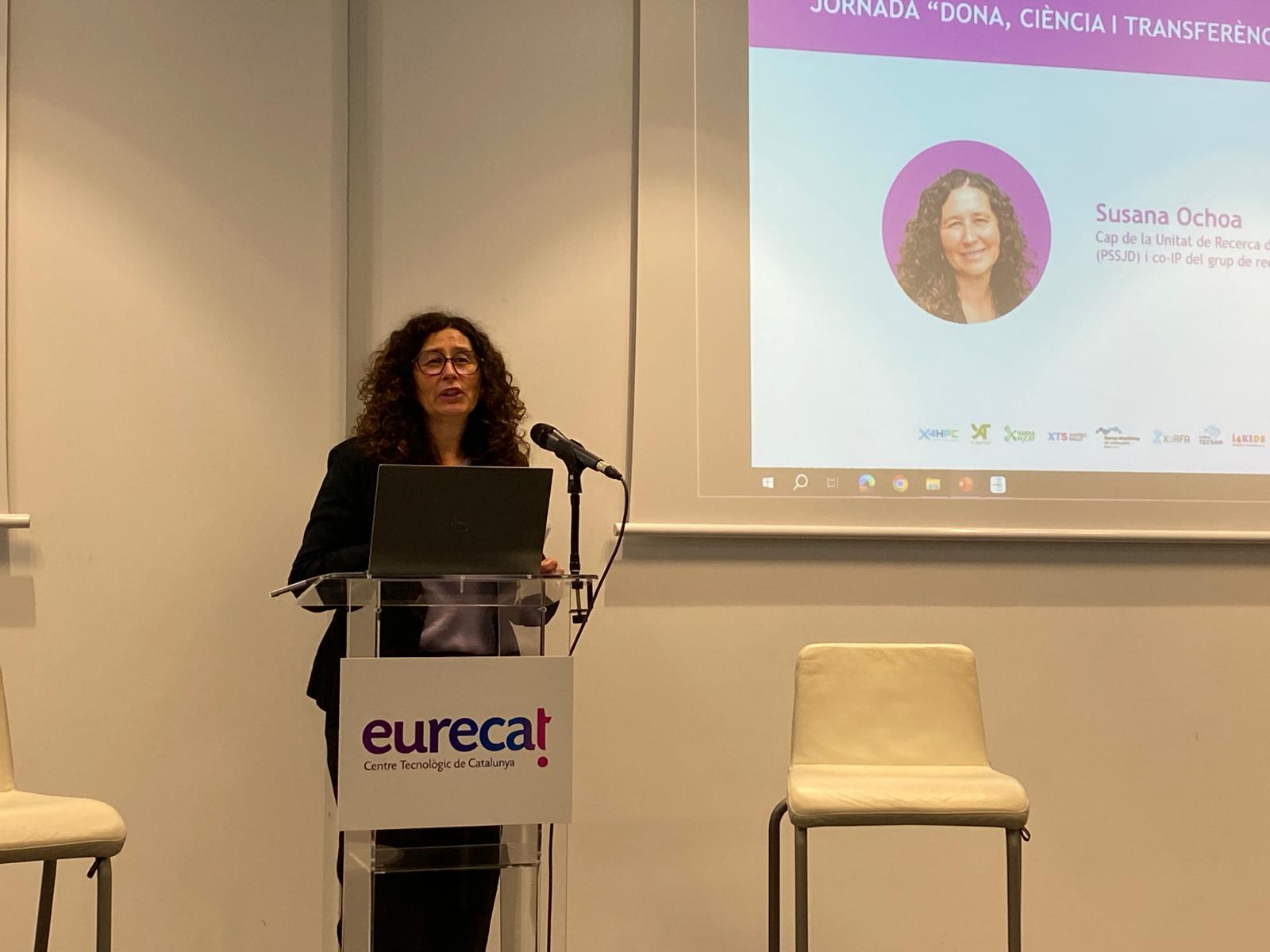
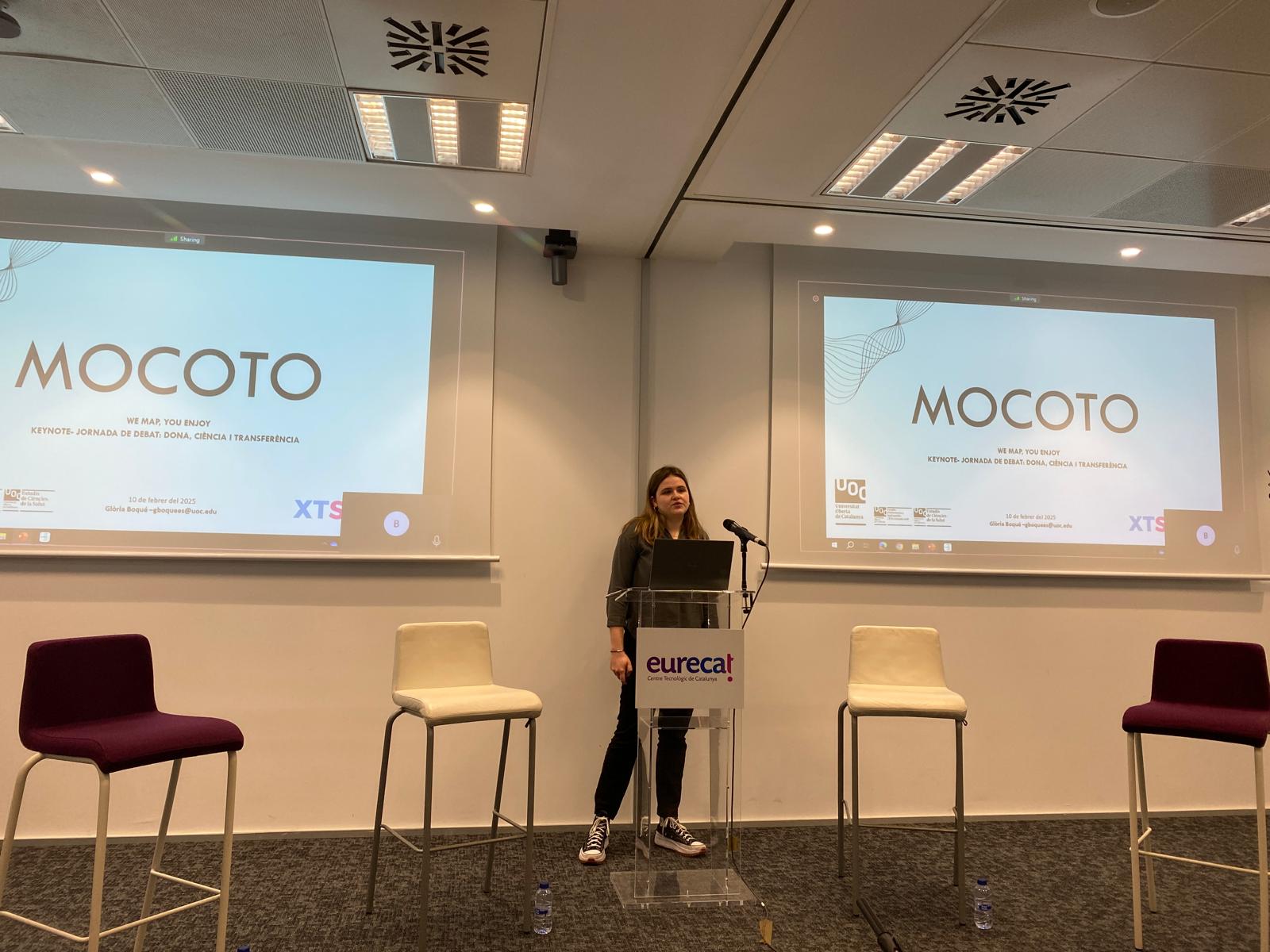
Debate and Reflection: Key Factors for Change
The event also featured a roundtable moderated by Eva Díaz, founder of Nido Innova (i4KIDS), and included the participation of:
- Debora Gil, researcher in AI applications in medical imaging at the Computer Vision Center (RDI-IA).
- Carolina Martí Llambrich, professor and researcher at the University of Girona (BlueNetCat).
- Laura Costas, researcher at the Biomedical Research Institute of Bellvitge (XarSMART).
- Estel.la Oncins, researcher in digital accessibility and media with ACCESSCAT.
- Sílvia Molas, researcher and head of the Corrosion and Degradation Line at Eurecat’s Metallic and Ceramic Materials Unit (H2CAT).
Key themes addressed included:
- Female and male leadership: The need to reshape paradigms for inclusive leadership.
- Equality policies: How institutional initiatives can break down barriers.
- The importance of education: Teaching children values that empower their abilities without gender-based limitations.
- Creating mentorship networks: Supporting the development of women in science.
- Challenging stereotypes: Breaking preconceived ideas that hinder girls’ interest in scientific careers.
- Female empowerment: Enhancing girls’ capacities and ambitions.
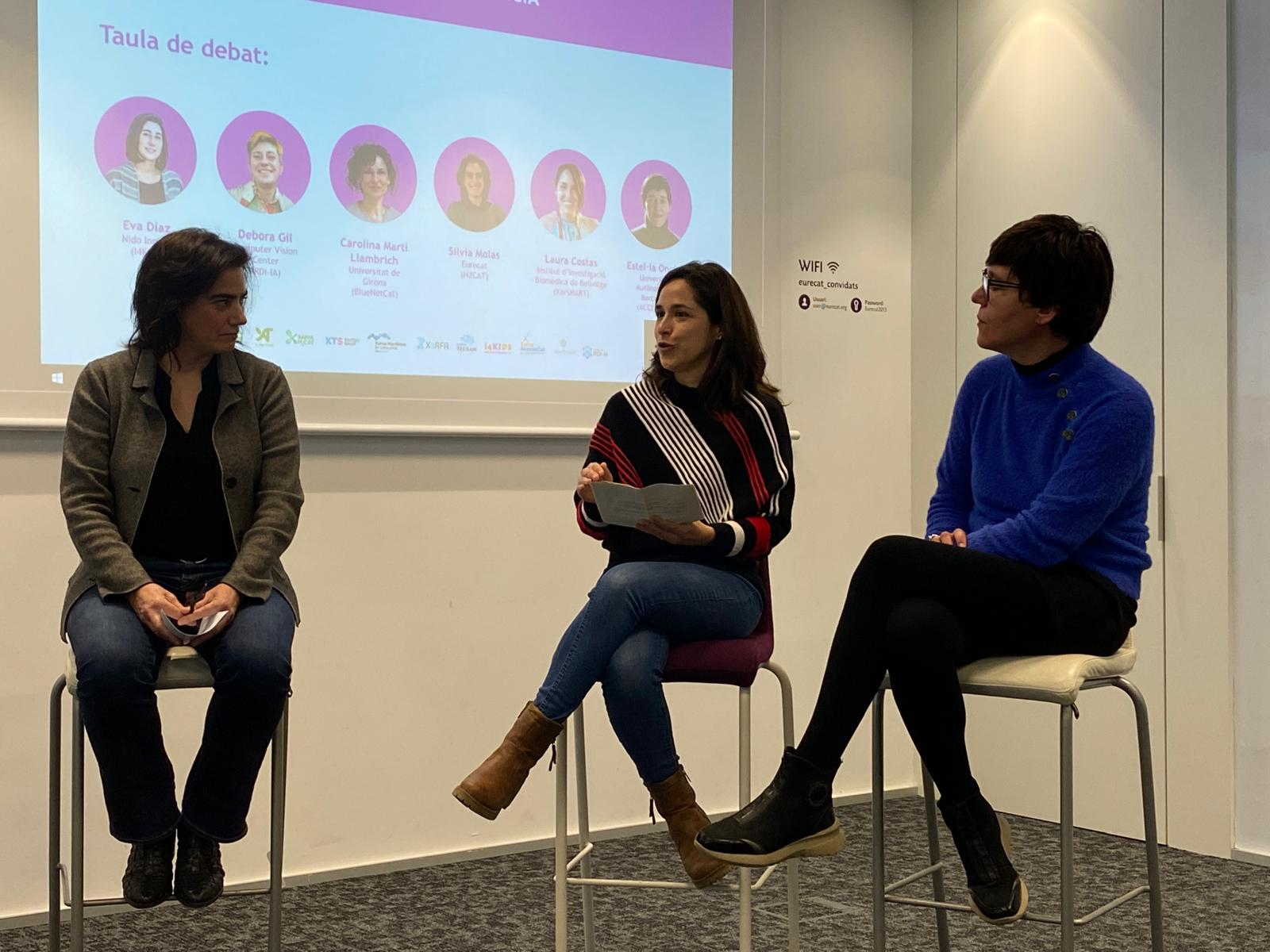
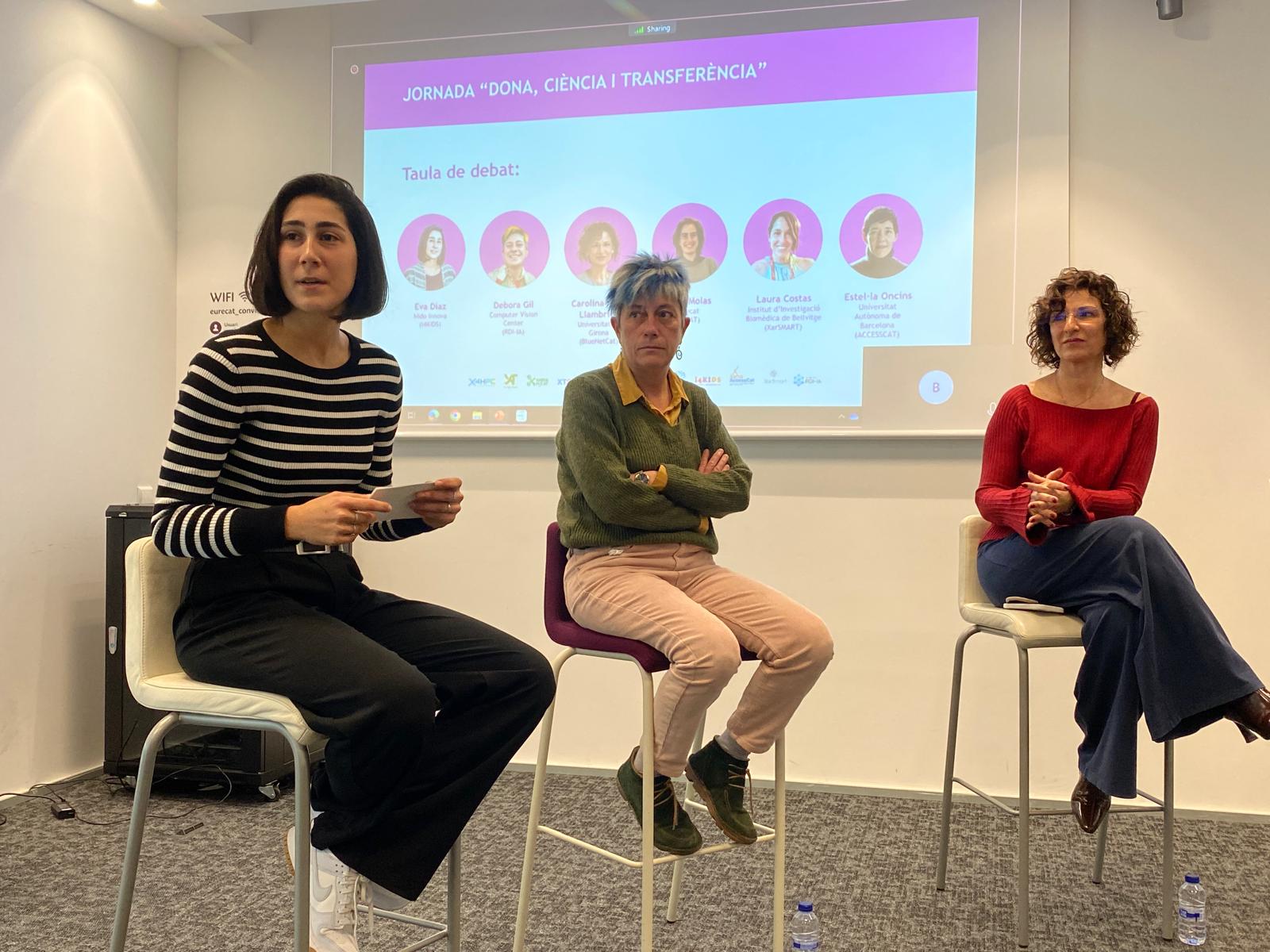
Visibility and Role Models: Keys to the Future
The discussion highlighted the importance of raising the visibility of women in science and technology to create strong role models for future generations. Gender stereotypes and the challenges associated with motherhood remain significant barriers. Therefore, policies and strategies need to continue to be implemented across institutions, academia, and society to reduce the gender gap in science.
The participating transfer networks—i4KIDS, Xartec Salut, Xarxa ACCESSCAT, XarSmart, Xarxa RDI-IA, H2CAT, Xarxa Marítima BlueNetCat, XaRFA, , X.AgriTech, y X4HPC—unanimously agreed on the importance of fostering collaborative spaces and knowledge transfer initiatives to encourage greater female participation at all levels of research.

Featured
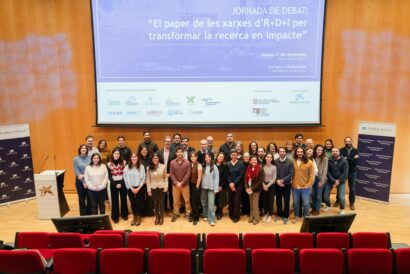
Featured
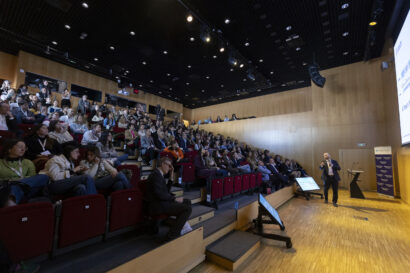
Featured
